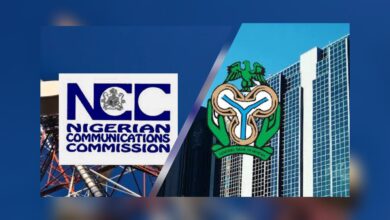NCC Targets Data-Driven Regulatory Services

The Executive Vice Chairman/Chief Executive Officer of the Nigerian Communications Commission (NCC), Dr, Aminu Maida has disclosed his plans to refocus the Commission into a date-driven one.
Dr. Maida who disclosed this during a Breakfast Meeting with some journalists on Tuesday in Abuja, said, his vision was to lead a Commission where its works, decisions and regulatory services are backed with data.
He also disclosed his plans to digitise the Commission’s processes by leveraging technology to reduce its internal operating cost.
“We are going to be looking at the processes with a view to revamping them, and also leveraging technology to make us more efficient and deliver our regulatory services in a more efficient manner and also reduce our own internal operating cost”, he said.
Speaking further on his strategic vision for NCC, Dr. Maida said, he would skill up the staff with the right training that will position them to deliver on the Commission’s mandates.
His Vision For NCC
“First and foremost, I cannot achieve anything without people, so I am going to be more deliberate on people within NCC to make sure they are skilled up and make sure they have the right training on all facets and functions that are required on this mandate so that we can deliver as promised.
“Secondly, you are going to see a change in the way we make decisions, we are going to be more data-driven. All our decisions are going to be back up by data as much as possible. We want to reduce subjectiveness and take the right decisions that will improve the industry.
“Thirdly, Compliance, when there is regulation without any consequences or enforcements on obligations you will agree with me that those obligations the chances of being met are very low so as we drive towards delivering optimal quality of experience for our customers, we intend to hold our licensees accountable for all services, after all the consumers pay for the services and they expect the service to be at a certain level or point so we will be holding our licensees accountable to ensure they deliver as per their obligations.
“The fourth is digitalization, so we are going to be looking at the processes with a view to revamping them, and also leveraging technology to make us more efficient and deliver our regulatory services in a more efficient manner and also reduce our own internal operating cost.
“The Fifth is Collaboration. We will place a very high premium on collaboration with all critical stakeholders including yourselves to ensure that everybody is carried along in a cooperative process so that we can try to create win-win scenarios for everybody, but of course if that is not possible all the licensees have an obligation and we will not shy way to enforce for the clients’’, he said.
The NCC Boss said, he would lobby State Governments on Right-Of- Way Charges in order to meet the National Broadband target.
Recall, Nigeria set a target of 70 percent broadband penetration by 2025 as part of the Nigerian National Broadband Plan (NNBP). As of now, the country has achieved 50 percent broadband penetration, and the NCC is optimistic about reaching 70 percent.
The Commission has been working to ensure increased broadband penetration to bridge the digital divide and drive the country’s digital transformation.
The EVC expressed his commitment to work with Honourable Minister of Communications, Innovation and Digital Economy, Dr. Bosun Tijani, the Ministry, Departments and Agencies (MDAs) to go on advocacy campaign to convert the states to remove some of the obstacles like right of way charges and multiple taxation,
“I have seen some studies which indicate taxation of almost 50percent getting to 55 percent in some areas in this country, and you will agree with me that if we are trying to bring in foreign investment, that is not a good picture to paint.
“We will also be advocating for critical national infrastructure and digital communications. Infrastructure is the foundation and future of our economy and as such we need to treat as a critical national infrastructure”, he said.





